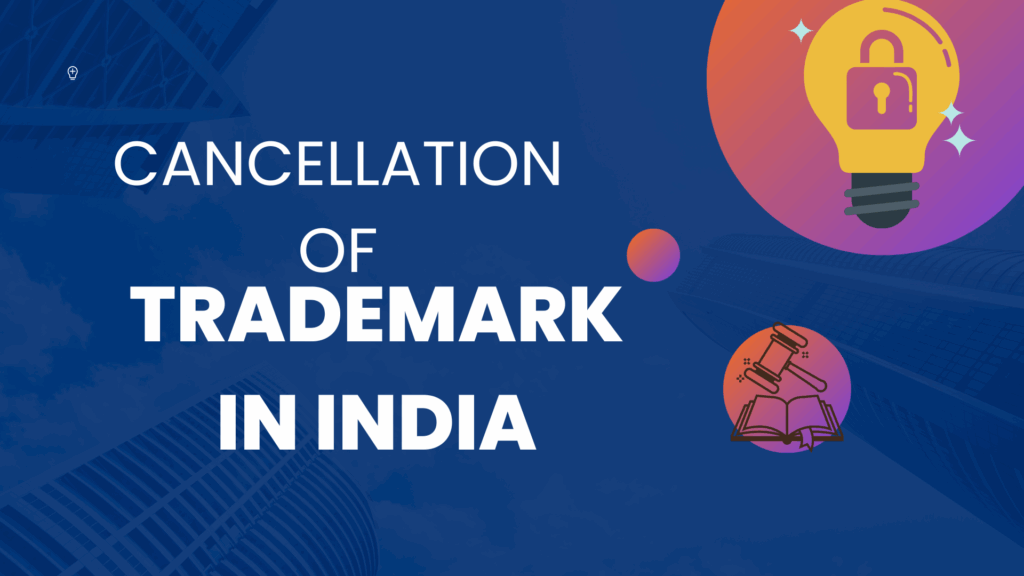Cancellation of Trademark Registration is a legal process that must be initiated by filing a cancellation petition with the Intellectual Property India (IPI) or the relevant government authority. The process typically involves a hearing before an administrative tribunal or court, during which the petitioner must prove the grounds for cancellation.
HOW TO CANCEL TRADEMARK REGISTRATION IN INDIA
A trademark can be thought of a name, a phrase, a logo, or even a sound that uniquely identifies your brand and distinguishes it from your competitor’s.
A trademark can be for both product and/or service. Once a trademark is registered, no third party can use the registered trademark for their products or services unless the original party that registered the trademark grants permission for any such use.
What are the different kinds of Trademark that can be registered in India?
a. Service Mark
Companies that are in the business of providing a specific service can register this type of Trademark. Service marks are used to differentiate between companies which provide similar kinds of services.
b. Shape of Goods
This kind of trademarks (shape of goods) can be used to identify a product purely based on the shape. These marks are often used along with a word mark. The Shape of Goods mark deals purely with the appearance of a product. Example: The shape of a coco-cola bottle.
c. Logos and Symbols
There are several instances where a company might want to use a specific design/printed figure to differentiate it’s market offerings and not include any word or character in such design. These kinds of trademarks come under Logos and Symbols. Example: Apple (The slightly bitten apple figure).
d. Series Marks
Series Marks ADVERTISEMENT ADVERTISEMENT Series marks contain a common prefix/suffix which is shared among multiple of a companies offerings. These products differ only as non-distinctive characteristics like price, size, quantity, etc.
e. Word Mark
In most cases people register a Wordmark. Word Marks are the specific set of characters associated with a company’s offering. These characters collectively distinguish a company’s product and/or service from its competitors
Who can file for the Cancellation petition?
According to Section 57 of the Trade Marks Act of 1999– any aggrieved party may submit a cancellation request to the Intellectual Property Appellate Board for the purpose of revoking or changing a trademark’s registration
Cancellation by the registered proprietor
The owner of the trademark may, in some circumstances, take the initiative to voluntarily terminate the trademark’s registration in India.
The voluntary cancellation of a trademark registration is typically brought on by an agreement the trademark owner has made with a third party or by other business action.
Grounds for filing a cancellation petition
Contravention to abide by a condition
Only when there is non-compliance with or violations of any conditions outlined by the Registry is there a “contravention on failure to observe a condition” attracted. However, it is important to remember that the clause does not apply to limitations as described in section 2(1).
For instance, if the mark is subject to stated conditions regarding the colour scheme, failure to comply with those criteria would constitute a violation and would be grounds for the revocation or modification of the trade mark registration under Section 57(1).
Omission from the register of any entry
When a trade mark that should have been registered with a condition or conditions has been registered without any, this basis can be used to challenge the registration.
An entry made in the register without sufficient cause
If any provisions of the Trade Marks Act of 1999 or the Trade Mark Rules of 2017 are determined to be violated by a registered mark, the registered mark may be challenged in such situations without good reason.
Error or defect in any entry in the register
If it can be proven that a registered trademark or its entry in the register has been kept there in error, the registration of that trademark may be contested










